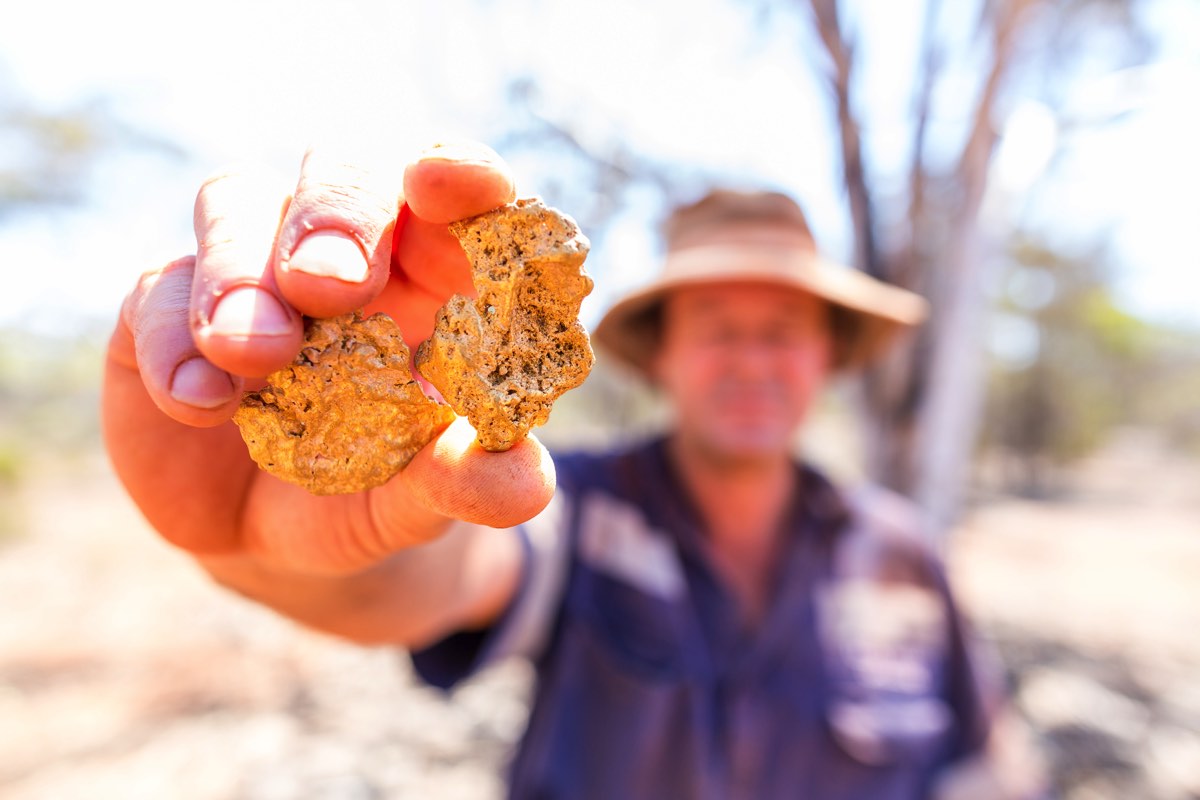The Olympics may have come and gone, but Discovery still has gold fever with its new series Aussie Gold Hunters.
Set in the remote gold mining fields of Western Australia, the series follows three teams of prospective gold hunters seeking to make their fortune.
Braving the punishing heat, brutal conditions of the outback, along with mechanical breakdowns and their own internal pressures, the teams scour the mining fields in the hope of a big pay day.
The series is one of 17 productions commissioned by Discovery Networks locally this year, with the company seeking to double its 2015 output. While many of the shows are also screened internationally in other Discovery territories, the local operation is committed to producing series for local audiences first, with the international audience a secondary consideration.
“First and foremost it is about the local stories and the relevance for our audiences, and ultimately then, if it does travel for international, that is a bonus. The priority for us is about finding those hits that resonate here locally.
“Discovery, locally, is absolutely committed to delivering big international hits to our audiences. We are also focused on the groundswell of local television that has come to fruition over the last few years across all of TV,” explained Jonathan Rudd, Discovery vice president of programming and production.
As you would expect, the team at Discovery hears a large number of pitches for potential factual programs. In addition to hearing from production companies at trade conferences, the team also hears “lots of pitches on a weekly basis. The exciting thing for our business is we have an executive producer who just started with us today. Thierry Bled will be overseeing our Discovery local productions scheme, which is where we open up pitches to up and coming producers, and established production companies.”
Bled, originally from the US, has served as a director and producer on several hit shows including Queer Eye For The Straight Guy and Project Runway.
Aussie Gold Hunters was produced for Discovery by Electric Pictures, a production company that specialises in factual programming for the international market. The Western Australian-based company boasted a 95% tapeless workflow for the production, which incorporated two main cameras, multiple mini-cams, and drone cameras. Considering the remote shooting locations, often over 100km from the nearest shelter or power source, the production was difficult on the team. All of the footage was delivered by hand to an editing facility in Freemantle, over 600km from where the series was shot.
“It’s extremely challenging,” Rudd said. “The WA goldfields cover an area which is three times the size of Great Britain, so logistically the production company, Electric Pictures, did a tremendous job in coordinating all of this.”
But the logistics of the remote shooting locations weren’t the only hurdle to overcome while shooting in the outback.
“The other issue is the weather. The remoteness of the locations, the torrential rain, the dust storms, and the extreme heat all combine together to really make the weather itself a core character for the series,” he said.
While the harsh location shooting makes for a difficult production, it is also one of the key selling points for the series in the US where audiences are drawn to the remote Australian outback and the beauty of our coasts.
“Our landscape is so vast and because we cover such a huge area of land, there are so many great stories and so many stories that haven’t been told here. That’s something the US are definitely interested in.
“In recent years it’s all about the stories on the water, which the US is looking at more and more closely. For us, it’s a combination of land and sea,” Rudd said.
It turns out that the Discovery audience is interested in Australia’s sea for reasons that extend beyond the annual Shark Week programming event that Discovery has become so well-known for.
Rudd explained that “we have an umbrella of programming on the channel, which is extreme jobs. Obviously sharks are a huge part of our way of life, but the commercial fishing industry has been generating some great stories for us over the years. It’s a combination of extreme jobs, likeable characters, and people who are putting everything on the line to make a living.”
Casting the likeable characters makes casting on programs like this a challenge, where not only does the audience need to want to spend time with the on-screen talent, but the participants on screen also need to be highly skilled and dedicated to their work.
“We have a saying at Discovery where, from a character perspective, our audiences really relate and engage with people we call Credible Insiders,” Rudd revealed. “You’ll see in this series, the gold prospectors are the real deal. They are putting everything on the line and have trained themselves up to become gold prospectors. That’s what makes them, as characters, very strong.”
